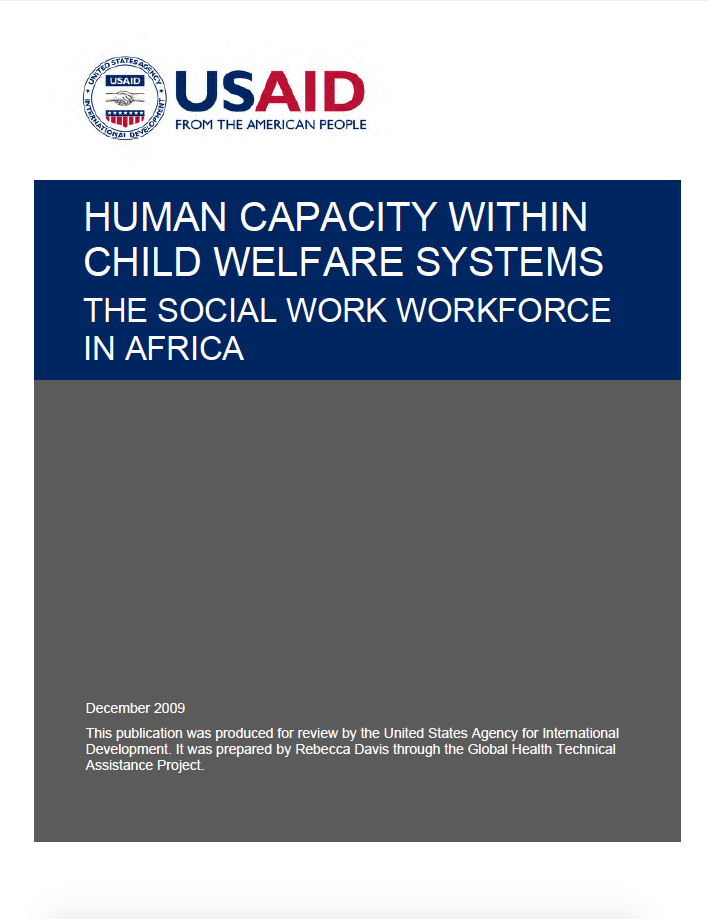
The aim of this study is to inform stakeholders about the opportunities for and constraints on building the social work workforce within the child welfare sector in Africa. Based on principles and practices of family-centered, community-based social work practice for orphans and vulnerable children (OVC), this report analyzes the capacity of the child welfare workforce and the education and training of social workers in Africa within the framework of African child welfare policies. Opportunities and constraints of the child welfare workforce in Africa are identified based on the a four-pillar framework that includes: 1) Policy and Legal Framework; 2) Child Welfare Service Models and the Practice Environment; 3) Education and Training; and 4) Outcomes and Performance Measures. One observation that underscores all the other observations and findings is that there exists a historically rich social work profession in Africa that was built on a community ideology and focused on meeting the needs of vulnerable children and families, especially those living in poverty. The loss of community in social work methods, the lack of indigenous knowledge and the underdevelopment of the profession, and the need to build the capacity of child welfare and social work education systems in Africa are consistent themes in this analysis. Results highlight that strengthening child welfare systems necessitates an approach that connects laws, policies, the child welfare practice environment, workforce capacity (including education and training), and defined outcome measures and data collection systems.


